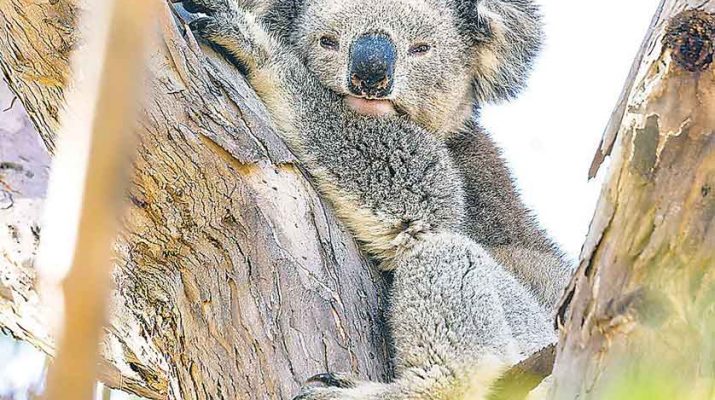By Julianne Langshaw
Friends of the Earth says it is concerned that an “unspecified number” of young male Strzelecki koalas will be soon on their way to South Australia “as part of a breeding program aimed at saving the species”.
The organisation said it first learnt of these plans earlier this year, and has been trying to find more information since November.
A recent article published by the Murdoch Press headed ‘Koalas strike gold. Cross-border love’, states “The boys will shack up with a group of very special koalas — known as the Golden Children — at Cleland Wildlife Park, the only sanctuary-managed population free from both chlamydia and koala retrovirus”.
South Australia’s koalas have extremely low genetic diversity, because their source population comes from only three translocated French Island animals, introduced to South Australia in the 1920s.
Koalas in South Australia are showing signs of inbreeding because lack of genetic diversity.
According to Friends of the Earth, the plan is to breed up a koala population that is genetically robust and does not suffer from chlamydia.
While the organisation says the plan may appear to have merit, it has concerns that are not addressed in the “vague details” about the plan.
It says there has been no support from the federal government, state government or South Australian government to support long-term protection for the Strzelecki koalas in either the Federal Environment Protection and Biodiversity Conservation Act, the Victorian Flora and Fauna Guarantee Act or the Victorian Wildlife Act.
It says the Strzelecki koalas therefore have limited protection provisions, despite the South Australian Environment Minister David Speirs being quoted as saying: “The arrival of the koalas is part of a bold new South Australian-Victorian conservation initiative, which will be a historic achievement in helping ensure the survival of koalas in Australia”.
A Friends of the Earth spokesperson said there was also no information provided about where the animals would be sourced, other than “The Victorian koalas will be taken from a private forest plantation under an agreement between the two state governments”.
They added Hancock Victorian Plantations owns about 50 per cent of known Strzelecki koala habitat.
“Depending on where the animals are sourced from, this could have large impacts regionally if the animals will all be sourced from a single location or in locations where koala numbers are already very low,” the spokesperson said.
“The Strzelecki koala population is probably as low as 1500 to 2000 animals, but no-one knows exactly how many animals remain.”
The spokesperson said there had been no communication about the translocation plan with the Strzelecki and South Gippsland communities which were concerned about the long term future of the animal in the region, claiming VicForests was now targeting key koala habitat in Alberton West, Jack River and Mullungdung Forest areas.
“These combined impacts will all lead to a further decline of the species in the region,” the spokesperson claimed.
According to a spokesperson from the South Australian Department of Environment and Water, the koalas will be sub-adult, pre-breeding males seven kilograms or less, and will be taken from a private forest plantation.
The spokesperson said the Victorian government approved a translocation permit until June 30, 2022, with COVID-19 regulations and weather to determine collecting times.
It is understood in-field chlamydia tests will be conducted, while retro-virus testing will be conducted once the animals have settled in South Australia.
The Department of Environment, Land, Water and Planning was approached for comment.

